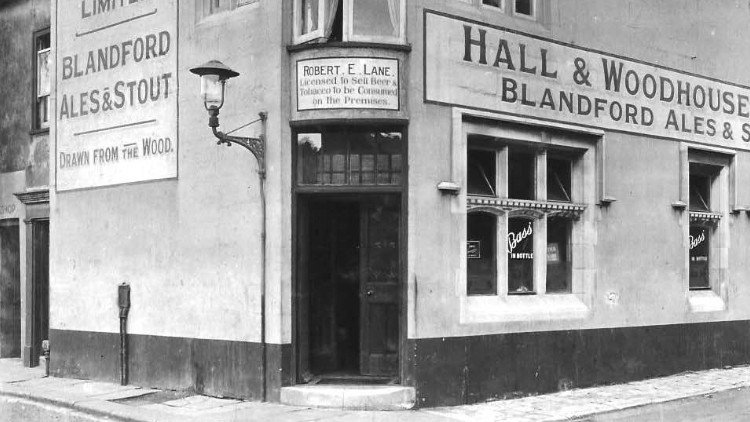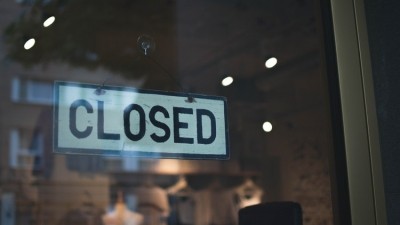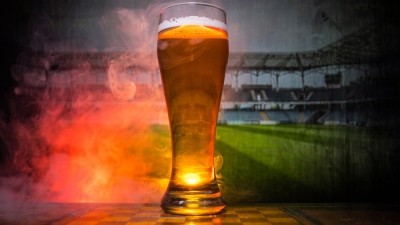Historical adversity
‘Lessons to be learned from the past’

‘Unprecedented’ is the word of the zeitgeist. Pandemics have occurred before in this country yet never on this level. Can pubs look to the past for any comfort, or is it totally unchartered waters?
Hall & Woodhouse chairman Anthony Woodhouse says looking at its brewery’s historical records was further testament that it had made the right choice in its approach to the crisis.
Slippery beast
Woodhouse tells The Morning Advertiser: “We have never, in our 243-year history, had to close our pubs, even during the two world wars.
Why did pubs not close during the Spanish Flu?
Historian James Kneale believes pubs were not affected by influenza legislation on public entertainment and other venues because they were already restricted in the war.
The Central Control Board (Liquor Traffic) had limited pub opening hours everywhere except the most isolated rural areas in England, Scotland and Wales by the start of 1917, which affected more than 90% of the population.
He says: “Wartime pubs were open for only two and a half hours in the middle of the day and three hours in the evening from Monday to Saturday, and three hours in the evening on Sundays, while Scottish and Welsh pubs were closed altogether as they had been for some time now.
“Before the war, English country pubs had been open for at least 16 hours a day, and London’s pubs for 19 and a half so this was an enormous change.
“Pubs could then be ventilated while they were closed in the middle of the afternoon.
“However, there are always lessons to be learned from the past. We have discovered minutes from a board meeting in 1932 during the Great Depression that reads ‘our tenants are having a difficult time, we should subsidise them.’
“That culture of all being in it together has lived on at Hall & Woodhouse, we followed a similar course during the financial crisis a decade ago and are doing so again now.”
The brewery has chosen to cancel rent for eight weeks (backdated to Sunday 22 March) and suspend loan repayments for all tenants at its pubs.
Historian Catharine Arnold described the Spanish flu outbreak – which claimed around 250,000 people lives in the UK alone – in language that will now feel familiar to many, in her book Pandemic 1918: The Story of the Deadliest Influenza in History.
She writes: “The shape-shifting creature that was Spanish flu was a slippery beast, difficult to define beyond the common characteristics of acute breathing difficulties, haemorrhaging and fever.
“As it progressed, many doctors and civilians would wonder whether this apocalyptic disease was actually influenza at all.”
Dr James Kneale who teaches cultural and historical geography at the University College of London (UCL), who has looked into this as a matter of personal interest, says there is scant records on the impact of the Spanish flu on the pubs of the 20th century.
He says: “It does look like pubs weren’t subject to much scrutiny, though, compared to cinemas and other public places, so there were some differences with today.”
Pubs were subject to licensing restrictions owing to British politicians’ beliefs that excessive drinking could hinder the home front during World War I.
It could be the case that such existing controls were considered to be enough at the time, the historian suggests. Taverns certainly did not come close to shutting down during this period.
Tom McMullen, director of the 130-pub strong McMullen brewery and pub operator, was able to look at the company’s account for the period from 1913 to 1922 – spanning the most vehement outbreak of the strain in 1918.
He also studied the various family diaries the brewery holds and says: “There was a material recovery for the business after the war that probably disguised the impact of the flu.
“For the financial year ending September 1919, the main year impacted by the Spanish Flu, the company showed 47% profit growth on the prior year with sales up nearly 9%. There was, however, a 5.9% decline for the year ending September 1920 so there may have been some legacy impacts.
“We were a tenanted business at the time, and tenants seemed to have also remained strong – bad debts were only around 1% of rents, a steady decline over a number of years.”
So even despite the tremendous impact of the outbreak on society, pubs were relatively unscathed and, like the rest of the nation, followed the Government’s ‘keep calm and carry on’ epoch.
McMullen adds: “Of course, hundreds and thousands died in the UK. That said, interestingly there is no mention of the flu by name in the diaries between 1918 and 1920 although a fair amount of family members seemed to have died around that time.
Caution about catching germs
‘MIND THAT COLD!’ from the Abergavenny Chronicle, 14 Nov 1919, p3
“Where glasses are used, as in confectioners’ shops, restaurants, and public houses, the usual procedure of cleansing after the customer drinks is a hasty dip into tepid, dirty water, a hasty rub with a dirty towel by a person with dirty hands and fingernails, who then places the glass upon a shelf to be used by the next customer.
“After the washer-up has finished with it, there are usually more germs than those that might have been left by the customer drinking from it just before.”
Greater concerns
“The above would support the suggestion that the authorities took a rather relaxed approach to the crisis and the public followed suit, no doubt hardened by the years of death on the [war] front.”
“Subsequent notes of the era suggest far greater concern and challenges from general labour unrest and inflation.”
Andy Brooke has operated the Laughing Fish pub, in Isfield, East Sussex, for 20 years and reiterates the experience of closing his pub is an unparalleled one.
Brooke says that the sentiment there are two institutions in British culture that will be able to withhold the test of time – the church and the pub – has been truly tested for the first time in history.
Pubs have never simply been where beers are sold.
He adds: “Our pub is very much a vibrant village meeting place where everything goes on – from wakes to weddings to TV to sport to Friday nights. We put the world to rights and we sort out all issues. It’s very much in common with thousands of other pubs. That is the role they have played and continued to play in society for hundreds of years until now.
“We now have to come to terms with the fact we are going to be without pubs – well, we have been without [them] for a few weeks now – and talk of Christmas as a reopening is not that exaggerated.”
The operator adds: “Pubs are, for the first time, under real threat. If society is going to change as we’re being told it is, so we are more respectful of things like simple social distancing, how on earth can you equate that with the role of the pub? Social distancing is almost the opposite of the pub, which is about people coming together.”
Brooke says he is in a strange position, having handed in his notice to Greene King last summer and being on the precipice of seeing the pub sign over to new tenants before the coronavirus epidemic hit.
He says: “We’re embedded in the village community here. I don’t want to just walk away because we know the threat to even very successful, especially rural, pubs on a change of owner is huge and especially when it’s a temporary tenant coming in.”
Shortly after Brooke and his wife took over the pub in February 2001, the countryside was hit with an affliction – foot and mouth disease.
He says: “The outbreak hit and had a big impact on rural communities as [people] couldn’t move around very much. People were told to keep away from farms and the countryside for fear of spreading it. We are very much in a farming community and restrictions on people coming out to farms impacted us. It was difficult to measure the impact on the pub because it was our first year.”
Never materialised
In 2001 – and a subsequent outbreak in 2007 – The Morning Advertiser reported on how the disease resulted in many pubs losing out on trade as police enforced protection zones around neighbouring zones and cut off main roads.
The swine flu outbreak of 2011 had little impact on the trade. Operator Brooke says he can hardly remember what that summer was like now, having told The Morning Advertiser in 2007 that he felt there would not be much of an impact on his pub.
While there were some fears that pubs could be forced to send staff and customers home in the autumn of 2011, thankfully the flu had a limited impact on the trade and initial hysteria about the disease proved itself to be little more than that.
Speaking now, Brooke says: “I don’t recall it having any impact whatsoever on our trade, not as great as the first epidemic that was foot and mouth in 2001 – that certainly had an impact. I don’t remember any impact in rural Sussex. It never materialised into something that was having as many deaths on the scale as Covid-19.”
Brooke says: “That is the big difference. Pubs have been great places to relax and meet friends, wind down. I’m sure the need to do that during the war was as great as anything. Pubs, I’m sure played a very important role in the war by being open in many areas.”
Although the majority of pubs across the country have ceased their operations – opting to remain closed rather than continue trading as a takeaway or delivery service – their role in their communities remains crucially important.







